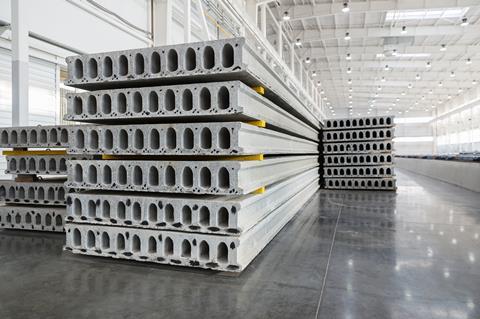The results of the 2021 Property Week/UKGBC Climate Crisis Survey highlight a polarised view of the impact of Covid-19 on the climate emergency. While almost half of respondents felt the pandemic would accelerate our pivot towards decarbonisation, 34.5% felt it would slow it down.

This conflict reflects an honesty in sentiment but also points to the complexity of our sector, which has the power to shape our economy, society and environment with short- and long-term repercussions.
Paradoxically, the pace of our national recovery, propelled by the government’s economic stimulus, may threaten our ability to respond with considered solutions that address the climate crisis.
Despite almost universal agreement that there are commercial opportunities in addressing the climate crisis, capacity to invest has, for many, been stifled by more immediate pressures. Many businesses have needed survival strategies at the very same time the industry is being challenged to prioritise innovating to reach net zero.
There is a small but sizeable window in which to prove ourselves responsible contributors to a green recovery. The way we choose to achieve this is through both brave risk assessment – adopting a long-term horizon that extends beyond market cycles – and collaboration to share ideas and knowledge.
This is illustrated by the design, specification and procurement stage of development, when decisions are made concerning whole-life carbon and the circular potential of our buildings.

For the past year, our business has been focused on analysing traditional approaches at this stage and building new models of value definition and creation. Starting ‘small’ but with the potential for widespread adoption across a large chunk of the new-build property market, we have worked to apply a decarbonisation process on behalf of a client for their adoption of precast concrete – a market forecast to grow by 18% to £2.3bn by 2024.
Concrete manufacture is a carbon-intensive process, said to be responsible for 4% to 8% of the world’s CO2. While question marks rightly hang over its environmental credentials, demand for concrete products is rising as urban densification means larger and taller residential buildings. With manufacturers having struggled to adjust to a drop in demand last year, the sector’s ability to decarbonise by accelerating the invention of scalable, sustainable technology and products has been compromised.
Decarbonising concrete
Last year, Akerlof formed a consortium to research and develop a pilot approach to decarbonising precast concrete. While innovation within the sector has typically developed in a fragmented, independent fashion, we have proactively convened leaders along the value chain to deliver a holistic, optimised solution.
The precast concrete market is forecast to grow by 18% to £2.3bn by 2024
Funded by Innovate UK and supported by the Ministry of Justice as part of its future capital programme, this pilot is aligned to the government’s commitment to developing low-carbon infrastructure.
Its lessons are transferable to other sectors and development types, including student and rental housing, and health and education infrastructure.
In achieving net zero, the ‘big fishes’ of our industry provide confidence and a beacon for SMEs and changemaker organisations to invest. Defined commercial demand for change provides momentum that unlocks scalable solutions.
To demonstrate this, we plan to share our findings with developers and their design teams in June, supporting others in addressing the challenges of embodied carbon in their pipelines. We are also looking to work with green finance to better understand its preferred metrics for lowering carbon in construction, to allow our clients to access this type of funding through the systems model we have created.
John Handscomb is founding partner at Akerlof





























No comments yet